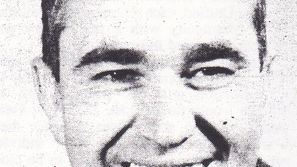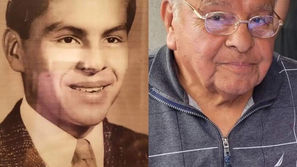Doubling down on the unfair and wasteful
- Jim Glynn
- Mar 13, 2018
- 4 min read
Do you know what’s not fair? Life. Here’s the thing. In October, like every October, I got my flu shot. The magic fluid was available in August, but my primary care physician wisely advised me to wait a couple of months so that the immunization would still be active during the peak of influenza season. That made sense. 2017-2018 flu
Then, the news reports started. It appeared that the 2017 flu vaccine would not be as effective as it usually is. More news reports followed. It appeared that the 2017-2018 flu strain was more potent, and therefore more dangerous, than it usually is. Additional news reports informed us that people were dying from this particular influenza strain.
I paid attention to these reports. I took precautions. I did my grocery shopping late at night when there are few, in any, people in the supermarket. I avoided crowds. I washed my hands, even after I’d just washed my hands. I put a large bottle (the kind with a plunger) of hand sanitizer right next to the sink so that I could apply the protective balm right after the second washing. I carried a small bottle of hand sanitizer with me. I used it after every transaction that involved touching things. But I still got the *%$!@# flu. I think I caught it from the hand sanitizer.
So, I spent the end of February and the beginning of March housebound. Although I was feeling better by Friday (March 2), I cancelled a luncheon date because I didn’t want to take a chance of spreading the flu germs to other people. As a reward for my civic responsibility, I suffered a setback on Saturday. See what I mean about life being unfair? But, I didn’t die, although that might have seemed like a pleasant relief about halfway through the progression of the illness.
I’m not implying that I was ever suicidal. I just get very frustrated by unfairness. Even in elementary school, I got in more trouble for my reaction to unfairness than for any action that I might have committed. In the eighth grade, I was delivering Brother John Martin’s books to the brothers’ house across the street from the school when the class apparently “acted up.” When Brother John issued the punishment, I refused to participate, arguing that I wasn’t in class during the commotion. As a result, I lost my position as the school’s student secretary, relinquished being class valedictorian to Sean O‘Connell, and accrued additional punishments. At the time, I thought it was all worth it not to bend to Brother John’s unreasonableness.
I guess that I’ve always penalized myself with “matters of principle.” And my feelings about unfairness extend to the practice of waste, even though I’m guilty of dabbling in wasteful pursuits more often than I’d like to admit. For example, I vote for President of the United States every four years even though I know that a few hundred electors really determine who will occupy the White House. And, that’s also unfair.
Daylight Saving Time
Daylight Wasting Time finally comes to an end, and we begin Daylight Saving Time. I’m not sure what happened to the sunlight that we’ve squandered since last November, but Neil DeGrasse Tyson assures us in his 2017 publication, “Astrophysics for People in a Hurry,” that we won’t run out of sunlight for a few billion years. Of course, Tyson is a scientist, director of the American Museum of Natural History’s world-famous Hayden Planetarium, and host of the radio and television hit series, StarTalk. However, it’s also clear that some of our national leaders have little, if any, confidence in science, and Tyson has a doctorate in astrophysics from Columbia University. These same leaders, naturally, perpetuate the iteration of time changes year after year.
Regardless of how one regards science, the fact is that most Americans will spend a good deal of time turning their clocks forward tonight or early tomorrow morning. Of course, each clock has its own set of instructions, probably written in “English” by someone who graduated from a Chinese university with a degree in English and writes the language about as well as I write Spanish (with three semesters of college courses and steadily declining grades). But, it doesn’t matter because the instructions that accompanied the devices were most likely discarded moments after the owner’s patience gave out.
A few years ago, I mentioned that resetting my multiple clocks twice a year ranks right behind cleaning the toilet. That’s saying a lot because “clock resetting” leapfrogs over such disagreeable activities as washing dishes, changing sheets, and paying bills. Besides, the whole thing is just silly. We continuously rotate on the earth’s axis, so the time in any given place is not the same as it is in some other designated place. To rectify this situation, we created time zones. But, in terms of the earth’s relationship to the sun, the time in eastern Madera County is not really the same as that in western Madera County.
I can count on the number of fingers between my ring finger and index finger the number of things that are truly great about Arizona. Here it is: The state disregards this time-change nonsense. But, that may have more to do with the state’s mean temperature. In most of the state, people come out only at night when the level of heat drops down into double digits. So, in a sense, time is immaterial when the most important aspect of life is avoiding sunstroke.
We who live in more moderate climes can adopt something like Arizona’s time conservation. Why don’t we — at the very least — adopt a single standard for the 48 contiguous states and stick with it. I propose setting the clocks forward and leaving them that way. If it is true that we benefit in some way from one extra hour of sunlight each day (a theory that has not been proven), then why not reap that alleged benefit every month? The alternative is simply wasteful.
• • •
Jim Glynn may be contacted at ”j_glynn@att.net.


























Comments